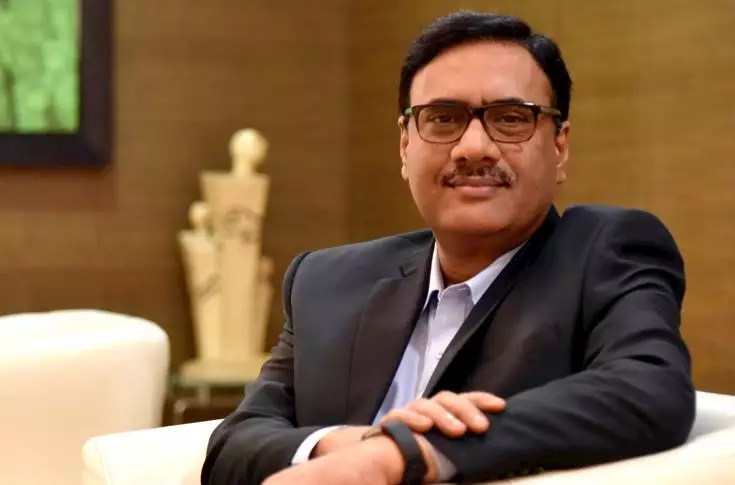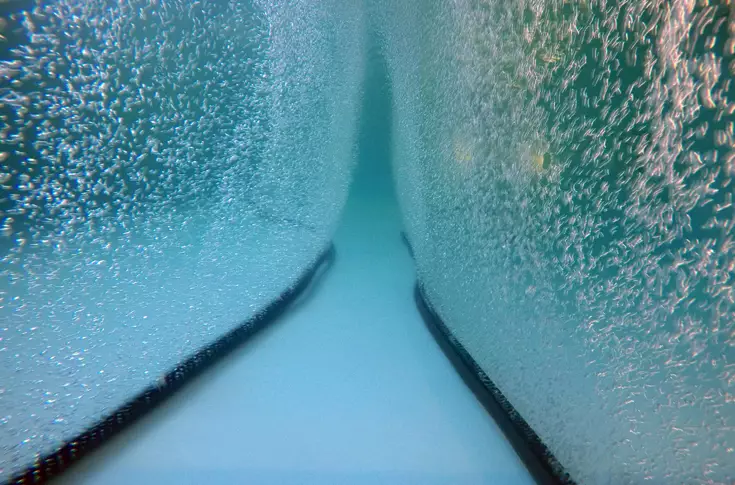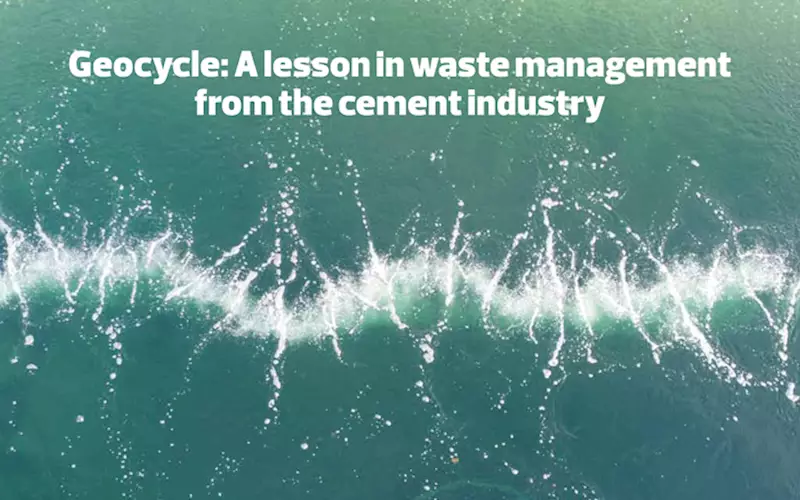Geocycle: A lesson in waste management from the cement industry
Geocycle India, the in-house waste management arm of Ambuja Cements and ACC, collects and processes the waste generated at the cement kilns without sending it to landfills. It has also started an initiative to collect plastic waste from water bodies through a low-caste technology called bubble barrier.
“Geocycle’s co-processing infrastructure guarantees environmentally friendly final management of the collected waste — co-processing in cement kilns recovers energy and recycles material value in waste, leaving no residues. This brings circular economy to life,” says Neeraj Akhoury of Ambuja Cements.
01 Apr 2022 | By WhatPackaging? Team
Waking up to the needs of in-house waste management, the two cement manufacturing leaders, Ambuja Cements and ACC, have come up with an in-house waste management arm, Geocycle India. Both Ambuja Cements and ACC have cement plants with a large volume of waste, which is now managed by Geocycle, which is also on the forefront of providing circular and sustainable solutions for waste from different industries, municipalities, the agricultural sector and local communities.
Geocycle India operates in Goa, Chennai, Noida, Nagpur, Bilaspur, Visakhapatnam, Trichy, and Erode to help manage the refuse derived fuel (RDF) generated from both fresh municipal waste and legacy dumps.
According to Neeraj Akhoury, CEO India, Holcim and MD & CEO, Ambuja Cements, in 2020, Geocycle was able to manage close to five-lakh tonnes of RDF and plastic waste in its various facilities.
“The companies have focused their efforts towards the Clean India Mission and are establishing partnerships to help contribute to the Swachh Bharat Mission,” Akhoury said.
He added that Geocycle has also co-processed about two-million tonnes of waste, thereby achieving a tertiary solids removal (TSR) of 6% in 2021.
Managing cement waste
Ambuja Cements and ACC have six pre-processing and fourteen co-processing facilities where close to 1-million tonnes of waste are handled annually, thereby diverting this waste from landfill.
Ambuja Cements’ plant in Kodinar in Ambuja Nagar, Gujarat, has been co-processing both solid and liquid waste for almost a decade. Ambuja Nagar has one of the highest clinker productions in the group at 12,500 tonnes per day and has been able to achieve a TSR of 7% in 2021 across all three kilns. It has also enabled the state to mitigate the challenges of plastic waste pollution with a very successful model adopted by the state government, the state pollution control board and the industry.
Meanwhile, ACC’s manufacturing unit at Wadi, Karnataka is one of the largest kilns in the world, producing 14,000 tonnes of clinker per day. The kiln co-processes more than 600 tonnes of waste on a daily basis. Wadi co-processes wastes such as plastics and industrial waste, contributing to a TSR of 18% in 2021.
“Ambuja and ACC have played a pioneering role in managing plastic waste pollution by working with various cities like Bangalore, Mumbai, Kolkata and also towns and villages like Gulbarga, Jabalpur, Jaipur, Ballarsha and Nashik. The companies are committed to become ‘net zero’ and help India become cleaner and greener.

Neeraj Akhoury, CEO India, Holcim and MD & CEO, Ambuja Cements
Geocycle bubble barrier
Apart from this, recognising the need to address the challenge of marine plastic pollution, in April 2021, Geocycle initiated a smart, non-invasive technology to efficiently remove plastics from canals and rivers before they reach the oceans.
For this, Geocycle has partnered with CanadianPond to implement the ‘bubble curtain’ technology. The bubble curtain is a non-invasive solution to stop plastic from entering the oceans. Ships and fish can pass through the air bubbles, but plastics will be stopped.
The bubble screen is created by a specially designed air tube which is placed diagonally on the bed of the canal or river. It brings waste to the surface, channels the plastic on to the banks, from where it can be extracted,” Akhoury said.
He added that it is a proven technology based on the existing technology. “It follows a low-cost, simple process — compressor, piping, collection system — and captures all floating objects on the surface larger than three to five-mm,” he said.
It is also a flexible process which can be designed for all types of rivers, and is easily multipliable and scalable. “Making the smart use of natural currents, the bubble curtain channels plastics to the sides of rivers and canals,” Akhoury said. “It also increases oxygen in the water, thus improving water quality. The best part is, it does not need changes in infrastructures and policies.”
The Geocycle bubble barrier has been set up on the Mantola canal, which carries waste water from the city of Agra to the Yamuna River. This canal was selected as it carries 40% of the city’s waste water. Moreover, the plastic leakage into the canal from surrounding land is also significant. Capturing the plastics floating in this canal will help in preventing the plastic litter from entering the Yamuna River.
The bubble barrier is generated using compressed air passing through tubes, which are placed at the bottom of the canal. These tubes are connected with a compressor which is powered by renewable solar energy. This makes the entire setup environment-friendly. Since the time of inception, it has been running successfully and has thwarted 500 tonnes of plastic waste leakage in the Yamuna River so far. In the future, it will remove 2,400 tonnes of plastic.
“The collected plastic waste will be co-processed within Ambuja and ACC plants,” Akhoury said.
The plastic waste extracted from the canal will be taken to a materials recovery facility. Here, the waste will be sorted in recyclable and non-recyclable plastic. The recyclable plastics will be sent to recycling facilities, while the non-recyclable plastics will be taken to Geocycle’s facility for pre-processing, followed by co-processing in ACC/Ambuja cement kilns.

Approach to circular economy
Akhoury said Geocycle’s approach to river plastic cleaning is markedly distinct from other river clean-up projects, which rely on landfilling or incineration to dispose of the collected plastic.
“Geocycle’s vast co-processing infrastructure guarantees safe and environmentally friendly final management of the collected waste: co-processing in cement kilns recovers energy and recycles material value in waste, leaving no residues. This brings the circular economy to life. Thus, these two technologies — bubble curtain and co-processing combined — offer a good opportunity to fight the challenge of marine littering by tackling the problem at source,” said Akhoury.
With the success of the first pilot of the bubble barrier, the second project has commissioned in BBMB Lake located in Sunder Nagar, Himachal Pradesh. The company has received a NOC from BBMB to install this innovative technology which will remove approximately 1,500 tonnes of waste from the lake per year.
Akhoury said the project is in the final phase for data collection, and scope finalisation with the local municipality. Additionally, Ambuja is also exploring establishing another bubble barrier in Gujarat, managed within Ambuja Nagar. This will help the local community around the plant by collecting plastics leaking into the rivers.











 See All
See All